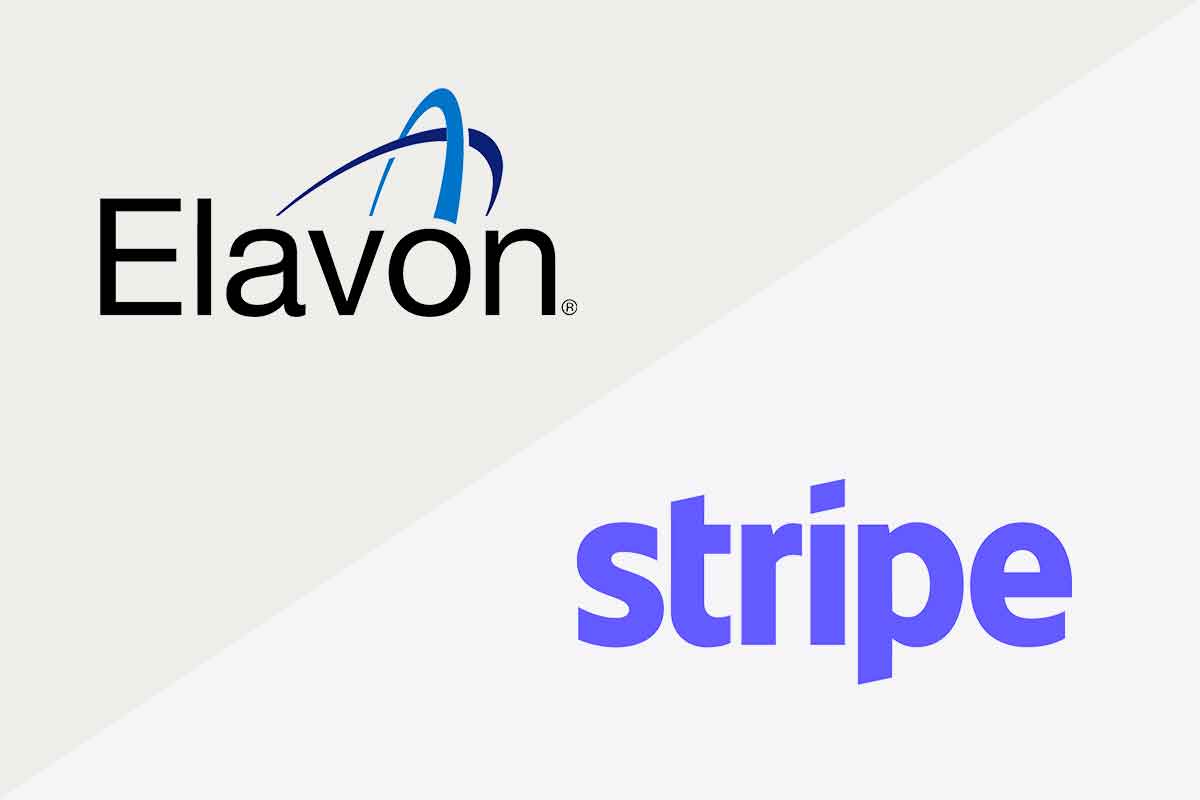In the landscape of digital commerce, the choice of a payment processing provider can be a crucial determinant of a business’s success. A trusted, reliable, and efficient payment gateway not only facilitates smooth transactions but also instils confidence in customers. For UK businesses seeking to select a payment provider, two names often stand out – Elavon vs Stripe.
Both are reputable, global companies, but they offer unique advantages and disadvantages. This article explores each platform’s features, pricing, and customer support to help UK businesses make an informed choice.
Featured pro tools
Elavon vs Stripe
| Feature/Service | Elavon | Stripe |
|---|---|---|
| Credit/Debit Card Processing | Yes | Yes |
| Mobile Wallet Processing (Apple Pay, Google Pay, etc.) | Yes | Yes |
| Alternative Payments (PayPal, etc.) | Yes | Yes |
| E-commerce Integration | Yes | Yes |
| API for Custom Integration | Yes | Yes |
| Physical POS System and Card Reader | Yes | Yes |
| PCI DSS Compliance | Yes | Yes |
| Advanced Fraud Protection | Yes | Yes |
| 24/7 Customer Support | Yes (Phone and email) | Yes (Email and chat) |
| Pricing | Negotiable and varies; can include setup fees, monthly fees, transaction fees, and hardware costs | Flat-rate pricing: 1.4% + 20p for European cards, 2.9% + 20p for non-European cards; Stripe Terminal: Verifone P400 for £299 or BBPOS Chipper 2X BT for £59 |
| Contractual Commitment | May include long-term contracts depending on the agreement | No long-term contracts |
| Early Termination Fee | May apply depending on the agreement | No early termination fee |
| Chargeback Fees | May apply; the exact amount can vary | £15 for disputed payments (refunded if the dispute is resolved in your favour) |
This table offers a simplified overview and the specifics might vary depending on the individual agreement or specific needs of the business. Therefore, it is always a good idea to directly contact each provider for a detailed and personalised quote.
Overview of Elavon vs Stripe
Elavon
Headquartered in Atlanta, Georgia, Elavon is a well-established payment processing company, having operated for over 25 years. It caters to various businesses, from small and medium-sized enterprises (SMEs) to large corporations, in numerous sectors including retail, hospitality, health, and public sector organisations. It provides an array of payment solutions, such as mobile, online, in-person, and integrated payments.
Stripe
Founded in 2010, Stripe is a relatively newer entrant in the payment processing market but has quickly risen to prominence due to its developer-friendly features and innovative payment solutions. This San Francisco-based company offers a comprehensive suite of payment services to businesses of all sizes, including e-commerce, mobile applications, and subscription services.
 |
Wallester Business ✓ Virtual & Physical Cards ✓ No Setup Fees ✓ No Monthly Fees Pricing Trial period Contact |
|
 |
Revolut Business ✓ Business Current Account ✓ Award-Winning Mobile App ✓ Quick & Easy Application Process Pricing Trial period Contact |
|
 |
Tide Business Bank Accounts ✓ Free, Plus, or Pro Account ✓ iOS & Android Mobile App ✓ Upload & Auto-Match Receipts Pricing Trial period Contact |
|
 |
Card One Money ✓ No Credit Checks ✓ Simple Fees ✓ Up to 3.5% Cashback Pricing Trial period Contact |
|
 |
ANNA Money ✓ Apply in 10 minutes ✓ Bookkeeping & Payroll Tools ✓ User-Friendly Mobile App Pricing Trial period Contact |
|
 |
Co-Op Business Banking ✓ Business Current Account ✓ Online, App & High Street Banking ✓ Quick & Easy Application Process Pricing Trial period Contact |
|
 |
HSBC Business Banking ✓ Business Current Account ✓ In-Branch, Online & App Banking ✓ FSCS Protected Pricing Trial period Contact |
|
 |
Metro Business Banking ✓ Business Current Account ✓ High Street Presence ✓ FSCS Protected Pricing Trial period Contact |
|
 |
Mettle Business Banking ✓ Business Bank Account ✓ Online & App ✓ Quick & Easy Application Process Pricing Trial period Contact |
|
 |
Monzo Business Banking ✓ Business Current Account ✓ Dedicated mobile app experience ✓ FSCS Protected Pricing Trial period Contact |
|
 |
Virgin Money ✓ Business M Account ✓ In-Store, Online & App Banking ✓ Insights & Forecasting Platform Pricing Trial period Contact |
Features comparison – Elavon vs Stripe
Payment options and compatibility
Elavon: Elavon supports a broad range of payment methods, including credit and debit cards, mobile wallets like Apple Pay and Google Pay, and alternative payments like PayPal. They offer in-person terminals and mobile card readers, in addition to their online and mobile payment solutions.
Stripe: Stripe provides a variety of payment options, covering credit and debit cards, digital wallets, and numerous global payment methods. Stripe is particularly renowned for its API-first approach, enabling businesses to build custom payment solutions.
Integration and ease of use
Elavon: Elavon offers several integration options, from simple ‘out of the box’ e-commerce plugins to API solutions for custom integrations. While it supports integration with major e-commerce platforms, some users report that the integration process can be complex.
Stripe: The key selling point of Stripe is its ease of integration. It provides robust APIs that allow businesses to customise their payment process entirely. Its developer-centric approach makes it the preferred choice for businesses with a technical team.
Security
Elavon: Elavon is compliant with the Payment Card Industry Data Security Standard (PCI DSS) and provides a secure encryption service for card data, reducing the risk of data breaches.
Stripe: Stripe also complies with the PCI DSS and implements advanced fraud detection tools. Their machine learning models automatically identify and prevent fraudulent activity, making their system very secure.
Pricing comparison – Elavon vs Stripe
Elavon
Elavon’s pricing structure can be somewhat opaque, with rates often negotiated on a case-by-case basis, depending on factors such as the business’s size, transaction volume, and risk profile. While this personalised approach might result in favourable rates for some businesses, it lacks the transparency that many modern businesses prefer.
Stripe
Stripe, on the other hand, operates on a clear, straightforward pricing structure. For most businesses, they charge a flat rate of 1.4% + 20p for European cards and 2.9% + 20p for non-European cards. They do offer volume discounts for businesses with large payment volumes, and there are no setup or monthly fees.
Customer support
Elavon
Elavon provides 24/7 customer service support via phone and email, which many clients appreciate. However, some customer reviews indicate dissatisfaction with the quality of service, citing difficulties in reaching representatives and resolving issues.
Stripe
Stripe’s primary support channel is via email, with 24/7 availability. They also offer support through chat for urgent matters. Their website contains extensive documentation, guides, and a user community forum. However, they lack immediate phone support, which could be a disadvantage for businesses needing instant resolution.
Comparing physical hardware products
In today’s diverse business landscape, physical hardware products like point-of-sale (POS) systems and card readers are still vital assets for many businesses, especially those with a brick-and-mortar presence. Both Elavon and Stripe offer physical hardware products, but their offerings differ significantly in terms of product range, pricing, and functionality.
Elavon
Elavon offers a wide range of physical hardware options tailored to businesses of varying sizes and needs. Their offerings include countertop terminals, wireless terminals, PIN pads, and mobile card machines. These devices support multiple payment methods, including credit and debit cards, contactless payments, and mobile wallets like Apple Pay and Google Pay.
Elavon’s POS systems are equipped with features like inventory management, staff management, and customer relationship management. They can also integrate with multiple peripherals, such as barcode scanners and receipt printers, making them a comprehensive solution for many businesses.
In terms of pricing, Elavon’s hardware can be more expensive upfront compared to other providers. However, businesses often have the option to lease equipment, which can help mitigate these upfront costs. This approach may be beneficial for businesses that prefer a lower initial investment, but it’s worth noting that the total cost over the lease term could exceed the purchase price.
Stripe
Stripe’s physical hardware offering is somewhat more limited, mainly focusing on mobile and internet-based businesses. Their primary hardware product is the Stripe Terminal, a card reader designed to integrate with the Stripe payment platform. The terminal supports chip and pin, contactless cards, and mobile wallets.
The Stripe Terminal is developer-centric, much like their payment platform. It allows businesses to build custom checkout experiences and is aimed at businesses that want to unify their online and offline payments. However, the terminal doesn’t offer the additional features like inventory management or customer relationship management found in Elavon’s POS systems.
Stripe’s hardware pricing is more straightforward. They offer two models of the Stripe Terminal – the Verifone P400, priced at £299, and the BBPOS Chipper 2X BT, priced at £59. There are no ongoing lease or rental fees, making Stripe’s pricing more predictable and transparent.
Hardware verdict
Elavon offers a more comprehensive range of hardware products, making them a viable option for businesses requiring advanced POS systems. However, their pricing model may be less transparent, and the total cost can be higher.
Stripe, on the other hand, offers a simpler hardware solution that aligns with their digital-first, developer-friendly approach. Their terminal may lack some of the additional features provided by Elavon, but their transparent, upfront pricing is likely to appeal to many businesses.
As with the broader payment platform comparison, the best choice will depend on your specific business needs and circumstances. It’s essential to consider your required features, your budget, and how the hardware will integrate with your existing systems when making your decision.
Conclusion – Elevon vs Stripe
The decision between Elavon and Stripe ultimately depends on your business needs.
Elavon is a more traditional provider, with a range of physical payment options, but their pricing and integration process may be less transparent and more complex.
Stripe, with its robust APIs, transparent pricing, and ease of integration, is particularly suited to digitally-focused businesses.
However, it’s crucial to consider other aspects such as your transaction volume, the complexity of your payment needs, and your preferred level of customer support. It’s advisable to reach out to each provider, discuss your specific needs, and request a tailored quote before making your decision. The right payment processing provider can significantly impact your business’s success, so this decision warrants careful consideration.
FAQ – Elavon vs Stripe
Elavon is a more traditional payment processor, offering a range of physical payment solutions in addition to online services, and its pricing is often negotiated on a case-by-case basis. Stripe, however, is an API-first, developer-friendly platform known for its easy integration, transparent pricing, and digital focus.
Elavon’s pricing tends to be less transparent, with rates often being negotiated individually based on factors like business size and transaction volume. Stripe offers a straightforward, flat-rate pricing model for card transactions.
Both Elavon and Stripe adhere to the Payment Card Industry Data Security Standard (PCI DSS). Elavon offers secure encryption for card data, while Stripe uses advanced machine learning models to identify and prevent fraudulent activities.
Elavon offers 24/7 customer support via phone and email. Stripe provides support primarily via email, with 24/7 availability, along with chat support for urgent matters.
Both Elavon and Stripe offer mobile payment solutions, supporting various mobile wallets like Apple Pay and Google Pay.
Yes, both Elavon and Stripe can integrate with most popular e-commerce platforms, but Stripe is often praised for its seamless, developer-friendly integration.
Elavon offers a range of hardware including POS systems, card readers, and wireless terminals. Stripe offers a more limited range, focused on their Stripe Terminal card reader.
Both Elavon and Stripe support international payments and a variety of global payment methods, but fees for non-European cards may vary.
Both Elavon and Stripe allow businesses to issue refunds, though the processes and potential fees can vary.
Yes, both Elavon and Stripe offer solutions for businesses needing to process recurring payments or manage subscriptions.
Both Elavon and Stripe provide support for handling chargebacks, though their fees and processes may vary.
Elavon caters to a wide range of sectors, including retail, hospitality, and health, with a range of physical and online payment solutions. Stripe’s digital focus and ease of integration make it particularly suited to e-commerce businesses and tech startups.
Yes, both Elavon and Stripe offer mobile payment solutions suitable for mobile businesses or pop-up shops.
Both Elavon and Stripe provide detailed transaction data, but the format and accessibility of this data may vary between the two platforms.
Both Elavon and Stripe are fully compliant with the Payment Card Industry Data Security Standard (PCI DSS), and they provide resources to help businesses achieve and maintain their own compliance.
Both Elavon and Stripe provide APIs for businesses wanting to create custom integrations, but Stripe’s API-first approach and extensive documentation often make it the preferred choice for developers.
Both Elavon and Stripe support a broad range of currencies, making them suitable for businesses with international customers.
Elavon’s contracts can vary and may include long-term commitments, while Stripe operates without long-term contracts.
Both Elavon and Stripe can integrate with tax calculation services, but neither directly calculates taxes as part of their core offerings.
The time it takes for processed payments to be deposited into a business’s bank account can vary between Elavon and Stripe, and can depend on several factors, including the type of transaction and the specific agreement with the provider.

